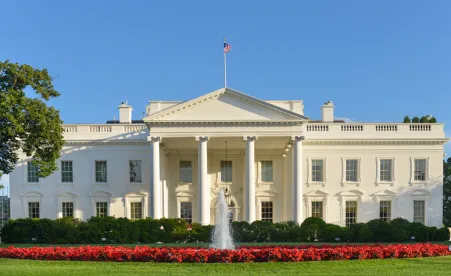The White House Executive Order on Ensuring Responsible Development of Digital Assets (the “EO”), is the policy statement that the industry was waiting and hoping for: one that recognizes the legitimacy of the cryptocurrency industry. The EO presents a balanced approach to cryptocurrency that both addresses the protection of customers and investors and the need for safety and soundness within the financial markets while allowing for the continued, “responsible” development of and innovation by the industry. The Administration’s ultimate goal is to ensure the US remains a leader in the advancement and oversight of this industry as it changes the face of the financial markets.
Despite the positive tone of the EO, which discusses the benefits the cryptocurrency industry such as financial inclusion, the EO does not go the extra step of clarifying the regulatory framework that should apply, leaving open the most important issue to the industry. Overall, the EO addresses the regulation question through a whole-of-government approach in examining and potentially filling regulatory gaps. It also opens the door to the private sector to participate in conversations about the future of crypto regulation and legislation. Specifically, the EO calls for a number of reports to be completed by multiple agencies. The following highlights a few of the key action items:
-
Within 180 days, the Secretary of the Treasury (“Treasury”), in consultation with several agencies, is to submit a report on the design of and implications for a Central Bank Digital Currency (“CBDC”). The report is to assess the impact of CBDCs on the US financial system, including the international payment system and the risks posed for national security interests as well as the potential for illicit use. A concurrent report is to be drafted by the Attorney General that will include proposed legislation as needed for the development of a US CBDC.
-
Within 180 days, the Attorney General, along with Treasury and the Secretary of Homeland Security, is to report on detecting, investigating, and prosecuting criminal activity in the cryptocurrency industry. This includes recommendations from the prudential regulators — the Board of Governors of the Federal Reserve System, the Federal Deposit Insurance Corporation, and the Office of the Comptroller of the Currency; market regulators — the Securities and Exchange Commission (“SEC”) and the Commodity Futures Trading Commission (“CFTC”); and consumer protection regulators — the Federal Trade Commission and the Consumer Financial Protection Bureau (“CFPB”) on the current measures in place to protect consumers, investors, and markets. The report requires recommendations by each agency for regulations or legislation if additional measures are needed.
-
Within 180 days, several agencies focused on energy, including the Energy Department, the Environmental Protection Agency, and the Federal Energy Regulatory Commission, are to report, among other things, on the impact of crypto mining on energy usage, the ability to use blockchain technologies to support monitoring or mitigating climate change, and the implications for energy policy.
-
Within 210 days, Treasury is to convene the Financial Stability Oversight Council, comprised of the Federal banking regulators, SEC, CFTC and CFPB, to assess “specific financial stability risks and regulatory gaps posed by various types of digital assets and provide recommendations to address such risks.” The report should address any need for additional or adjusted regulation, supervision, and legislation.
-
Within 120 days, Treasury, in consultation with the State Department, the Attorney General, the Commerce Department, Homeland Security, and National Intelligence, will develop an action plan to mitigate illicit use of cryptocurrency in finance and the national security risks posed by cryptocurrencies, including stablecoins and CBDCs. The action plan should include law enforcement measures to increase compliance with anti-money laundering/countering the financing of terrorism (“AML/CFT”) obligations.
-
Within 120 days, Treasury, in consultation with other agencies, will develop a framework for international coordination on global principles and standards for cryptocurrency and the development of CBDCs. This framework will be supplemented by another report required in 90 days from the Attorney General and other agencies focused on strengthening international law enforcement around criminal activity involving cryptocurrency.
Potential Impact on Pending Legislative Proposals
The EO has the potential to impact various legislative proposals currently pending in Congress. Stablecoins are still ripe for legislation, but current proposals will be paused while the agencies research and prepare responses to the EO. Recent Senate Banking Committee and House Financial Services Committee hearings also indicate that bipartisan consensus is lacking on exactly what kind of legislation is needed for stablecoins. Possible legislation on the horizon that does have bipartisan and bicameral support involves granting special authority to the CFTC to directly regulate digital assets that are commodities. However, this effort will be paused so that the Financial Stability Oversight Council (of which the CFTC is a member) can prepare policy recommendations to address the financial risks and regulatory gaps posed by cryptocurrency per the EO. This lowers the likelihood that new legislation pertaining to the cryptocurrency industry will be passed this election year.
Willingness to Engage the Cryptocurrency Industry
While the EO did not expressly define a role for the industry in completing these reports, the White House’s fact sheet – issued in conjunction with the EO – noted a willingness to engage with industry participants. The timeframe for the reports required by the EO should create an urgency within the industry to directly engage with regulators and Congressional representatives in a systematic and coordinated effort on each individual topic to help shape the policy, regulatory, and legislative recommendations that will be the result of this government-wide review. Failure to engage in productive and comprehensive dialogue will result in the development of policies and regulations that may hinder, instead of promote, innovative growth.





 />i
/>i
